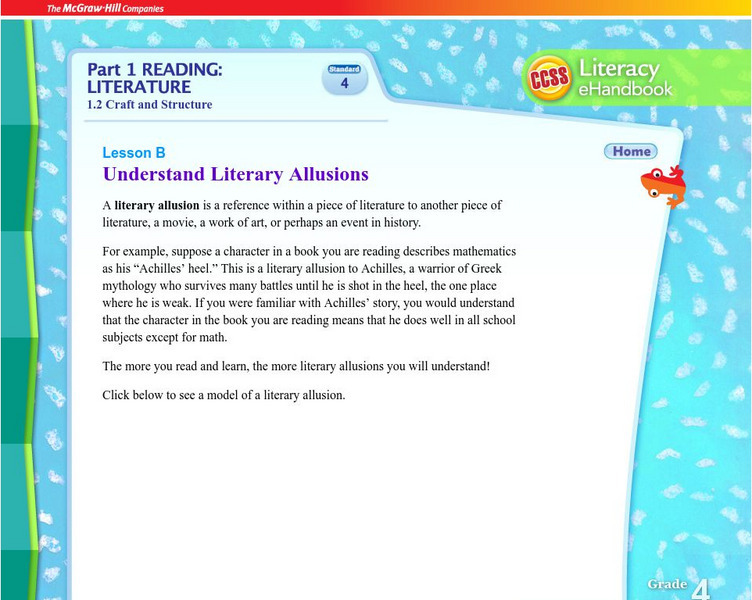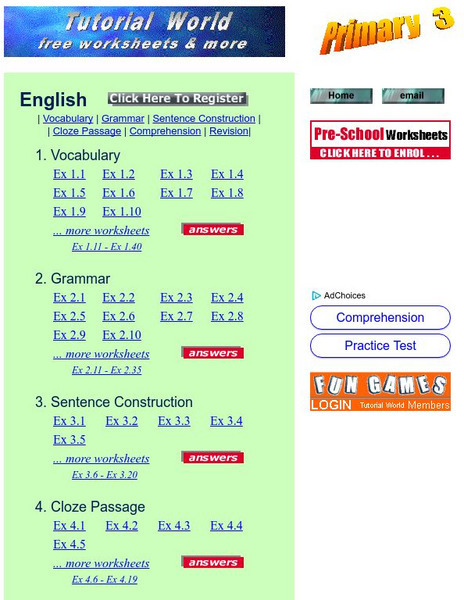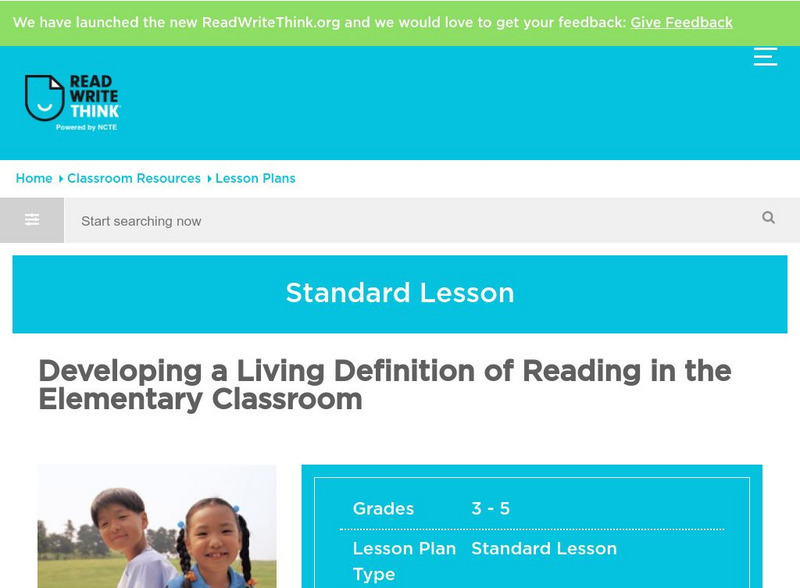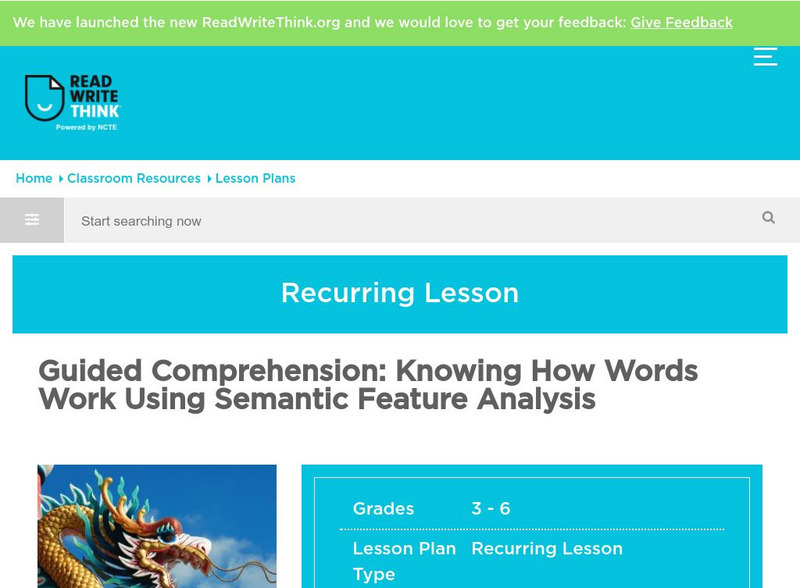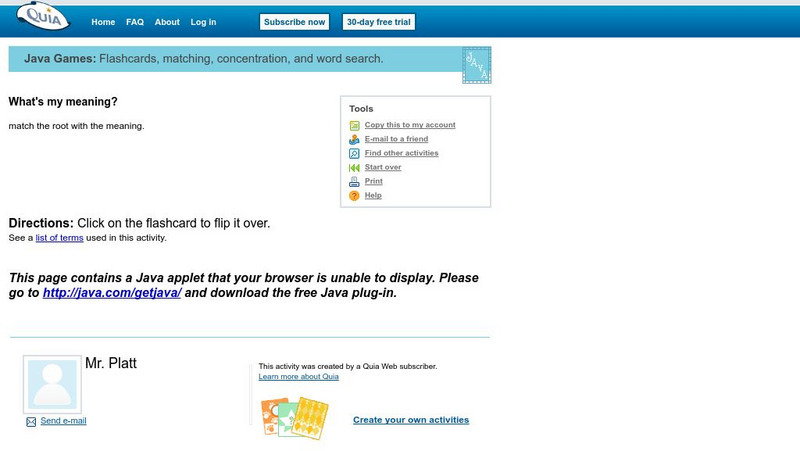S.E. Schlosser
American Folklore: Oregon Folklore
Read brief folktales, myths, or legends from the state of Oregon.
S.E. Schlosser
American Folklore: Oklahoma Folklore
Read brief folktales, myths, or legends from the state of Oklahoma.
S.E. Schlosser
American Folklore: New York Folklore
Read brief folktales, myths, or legends from the state of New York.
S.E. Schlosser
American Folklore: New Mexico Folklore
Read brief folktales, myths, or legends from the state of New Mexico.
S.E. Schlosser
American Folklore: Canadian Folklore
Read brief folktales, myths, and legends from Canada,
Text Project
Text Project: Fyi for Kids: Vol. 3, Issue 1: Greek Mythology [Pdf]
This magazine article discusses Greek Mythology; it explains how the people made up stories and gods to explain things that scientists had not yet discovered such as lightning, the daily rising and setting of the sun, and ocean waves.
Curated OER
Mc Graw Hill: Part 2 Reading Informational Text: Understand Precise Vocabulary
Learn how to use context clues to help you define precise vocabulary words that you may not know.
Curated OER
Mc Graw Hill: Part 1 Reading Literature: Folktale
Understand how to read and find the message the exist in a story. Learn how folktales include messages in their stories.
Curated OER
Mc Graw Hill: Part 2 Reading: Informational Text: Understand Content Words
A reference page that shows you how to use context clues to figure out the meaning of unknown content words.
Curated OER
Mc Graw Hill: Part 1 Reading: Literature: Describe a Setting
Do you know how to find the setting of a story? Learn how to find the when and where a story took place on this site.
Curated OER
Mc Graw Hill: Part 1 Reading: Literature: Understand Literary Allusions
Understanding literary allusions can help in your understanding of readings. Learn about literary allusions on this site.
Other
Tutorial World: Primary 3 English
This site is for teachers looking for worksheets for third-grade English students. Includes vocabulary, grammar, sentence construction, comprehension and revision.
Other
Spelling police.com: Oxymoron
Informational site that provides the definition for and examples of oxymoron. L.9-10.5a Figures of Speech
Other
Interacting Texts Directed Activities Related to Texts (Darts)
Want to improve your students' reading skills? This is a good place to find the types of directed activities, using a definition text, reconstruction/analysis activities, and advantages of using DARTs.
ReadWriteThink
Read Write Think: Composing Cinquain Poems With Basic Parts of Speech
Reinforce student understanding of parts of speech through the analysis of sample cinquain poems followed by the creation of original cinquains.
ReadWriteThink
Read Write Think: Developing a Living Definition of Reading in the Elementary
Using the guiding question, "What is reading?" students interact with a variety of texts as they uncover the skills necessary to interact with texts and develop a definition of reading.
Quia
Quia: Congress Test
This is a 5 question metaphor quiz in which students select answers from options given. Java is required.
ReadWriteThink
Read Write Think: It Doesn't Have to End That Way
Literary response and prediction are the focus of this lesson plan. Knowing story structure is an important skill for literary analysis, and this gives teachers a way to help learners develop this skill. Includes links to web resources,...
ReadWriteThink
Read Write Think: Zines for Kids Multigenre Texts About Media Icons
Contains plans for nine lessons that ask students to create multigenre zines for popular culture figures that include letter, persuasive, narrative, acrostic poetry, comic, and biography/autobiography writing. To accomplish this,...
ReadWriteThink
Read Write Think: Guided Comprehension: Semantic Analysis
Lesson introduces learners to comprehension of knowing how words work. Students learn semantic feature analysis and examine folktales, myths, and fables using this analysis to better understand these terms and texts.
ReadWriteThink
Read Write Think: Using Read Aloud as a Springboard to Writing
Using "Thunder Rose" by Jerdine Nolen, this lesson plan explores elements of tall tales. Included in the lesson plan is an overview, practice, objectives, resources, preparation, and more.
ReadWriteThink
Read Write Think: Writing Abc Books to Enhance Reading Comprehension
Contains plans for four lessons that are adaptable to many texts that young scholars may be reading. Students analyze the text for literary elements such as characters, setting, figures of speech, and themes, and then publish their...
Quia
Quia: What's My Meaning
These virtual vocabulary flashcards display the root words on one side and their meanings on the other.
Quia
Quia: Elements of Literature: Rags to Riches
Answer the 15 questions in this game about literary elements for the prize of fame and fortune. Java is required.


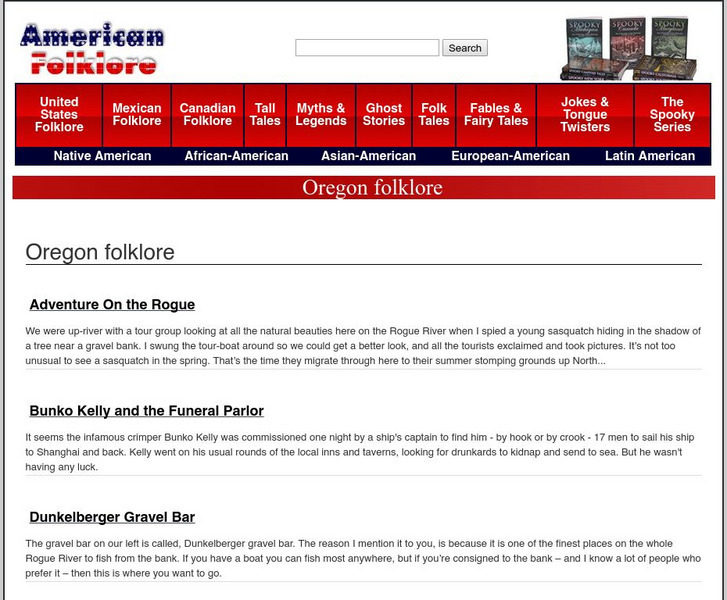
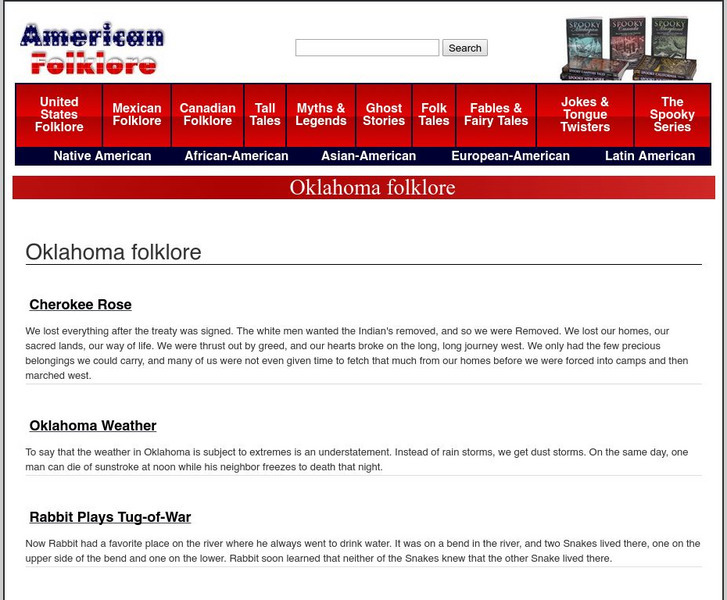



![Text Project: Fyi for Kids: Vol. 3, Issue 1: Greek Mythology [Pdf] Article Text Project: Fyi for Kids: Vol. 3, Issue 1: Greek Mythology [Pdf] Article](https://d15y2dacu3jp90.cloudfront.net/images/attachment_defaults/resource/large/FPO-knovation.png)



